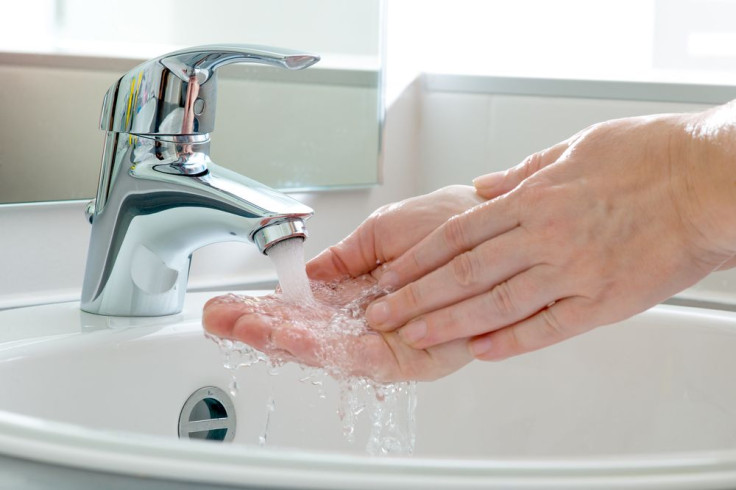Virus Spreads Rapidly Within 2 To 4 Hours; How Disinfecting Wipes With Quaternary Ammonium Compounds Reduce Contamination By 80-99%

Have you ever wondered why the flu seems to hit everyone around the same time? People are constantly touching germ-infected surfaces, especially in office buildings. Computers, elevators, and doors are contaminated surprisingly fast with infectious bacteria. A new study shows just how rapidly a virus can spread and says the best way to stop the spread of viruses is to practice good hand hygiene and use disinfectant wipes to clean off surfaces.
In the study, presented at the 54th Interscience Conference on Antimicrobial Agents and Chemotherapy, researchers show that bacteria from door knobs and other surfaces can travel in just two to four hours, infecting 40 to 60 percent of workers and visitors at various facilities. In the study, Charles Gerba and his colleagues substituted bacteriophage MS-2 for the human norovirus, as they are very similar, to find out how fast viruses can travel. At the beginning of the day, researchers put the phage (the norovirus substitute) on door knobs and table tops of office buildings, health facilities, and conference rooms. Every two to eight hours, researchers checked for surfaces that carry infectious organisms (fomites), such as hand rails, countertops, phones, and computers. In those two to four hours, over half of all surfaces were contaminated with the virus.
In the second part of the experiment, researchers attempted to eliminate harmful bacteria from surfaces. Once daily they used disinfectant wipes to clean off potentially contaminated surfaces. This simple extra step was extremely effective. The virus was reduced by 80 percent or more on fomites and the concentration of the virus was reduced by 99 percent or more. "Using disinfecting wipes containing quaternary ammonium compounds (QUATS) registered by EPA as effective against viruses like norovirus and flu, along with hand hygiene, reduced virus spread by 80 to 99 percent," said Gerba, of the University of Arizona, Tucson, who presented the study.
Good hand hygiene is not merely giving your hands a quick shower; in order to get rid of viruses, you must wash your hands thoroughly. The Centers for Disease Control and Prevention says your hand washing routine should include theses five steps: wet, lather, scrub, rinse, and dry. A study from the Aberystwyth University-Ceredigion in the UK shows that keeping your hands clean means less handshakes and more fist bumps. If you aren’t into fist bumps, high fives are your next best option. Since you aren’t touching the full hand, you are exposed to less infectious bacteria.
Every year, between 56,000 and 71,000 people are hospitalized, and between 570 amd 800 people die from gastroenteritis, commonly caused by the norovirus. Researchers say touching infected surfaces and touching your mouth is the easiest way to get infected.
Researchers concluded that viruses spread quickly, but immediate intervention is the best way to stop contamination. You don’t have to become a germaphobe to keep your hands clean, especially before eating. Try to occasionally wipe off your computers, counters, and other surfaces that are often infected with bacteria. If you can’t get to a sink, carry hand sanitizer. If someone coughs in their hand and extends it out for a handshake, offer a fist bump. These are all easy ways to help prevent the rapid spread of bacteria.
Source: Gerba C. How Quickly Viruses Can Contaminate a Building. 54th Interscience Conference on Antimicrobial Agents and Chemotherapy. 2014.



























